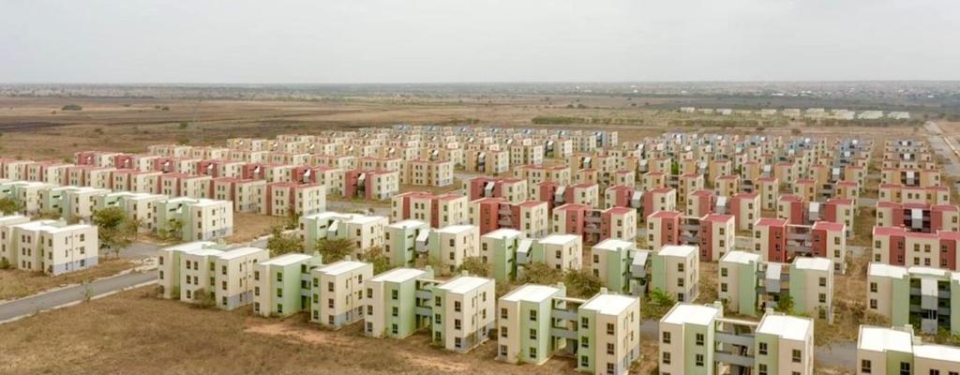Only one percent of households in Ghana can afford decent homes.
This is according to the 2024 Revised Ghana Housing Profile launched by the Ministry of Works and Housing in collaboration with UN Habitat and the United Nations Office for Project Services (UNOPS).
A decent home, as defined by the Ministry of Works and Housing, must have sufficient space for all inhabitants, be secure against forced eviction, be free from hazards, and provide access to basic needs such as water, electricity, and sanitation facilities.
Additionally, it must be situated in a safe environment.
The housing profile, compiled using data from reputable institutions such as the Ghana Statistical Service (GSS), highlights key issues affecting housing in Ghana and offers potential solutions to address these challenges.
The Minister for Works and Housing, Kojo Oppong Nkrumah, expressed hope that the report would shape the country’s development agenda and drive meaningful policy reforms in the housing sector.
“They are contributions of the body of knowledge in the area of housing which should then influence the interventions that we roll out. Let this document serve as a blueprint for coordinated action guiding us towards a housing sector that meets the aspirations of every Ghanaian,” he said on Wednesday, November 27, 2024.
During the launch event at the Alisa Hotel in Accra, the lead author and consultant of the revised profile, Professor of urban planning and current head of the Department of Planning at the Kwame Nkrumah University of Science & Technology, Clifford Amoako, expanded key issues from the report among which are:
- 1% Ghanaian households can afford decent homes that are provided by the formal sector, that is, real estate developers
- 11% of expensive houses procured by people have been left largely empty
- The housing deficit decreased from 2.8 million to 1.8 million over a period of 10 years, reflecting a reduction of 1 million units.
The Works and Housing Minister also urged that the revised housing profile is a diagnosis of the housing sector in Ghana and only recommends solutions.
The active involvement of the private sector and other stakeholders will be crucial in improving on all highlighted defaults.
Latest Stories
-
AfDB backs government’s 24-hour economy policy with strategic funding support
6 minutes -
MTN FA Cup: The referee decided the game – Golden Kick coach on controversial penalty
11 minutes -
Ghana to evacuate citizens from Iran – Foreign Affairs Minister
26 minutes -
BoG expects inflation to trend down to end-year-target – First Deputy Governor
26 minutes -
Ghana’s embassy in Tehran shut with immediate effect over Iran-Israel war
31 minutes -
‘We never thought they would give us a game like this’ – Kwame Opoku on Golden Kick performance
37 minutes -
Repeal “embarrassing” Dumsor Levy completely – Akosua Manu to government
38 minutes -
Ofori-Atta isn’t running away from accountability; he is simply unwell – Haruna Mohammed
44 minutes -
Go to court and stop prosecuting your cases in the media – Haruna Mohammed to AG
51 minutes -
Investigators find cockpit voice recorder from crashed Air India flight
54 minutes -
Asante Kotoko to feature in next season’s CAF Confederation Cup
58 minutes -
CWC 2025: PSG run riot against 10-man Atletico Madrid
1 hour -
Government to release DRIP machines for farm road projects – Agric Minister
1 hour -
Government’s justification for fuel tax suspension ‘a joke’ – MP
1 hour -
‘We pampered them too long; now they’re biting,’ Franklin Cudjoe says of nurses’ strike
2 hours

